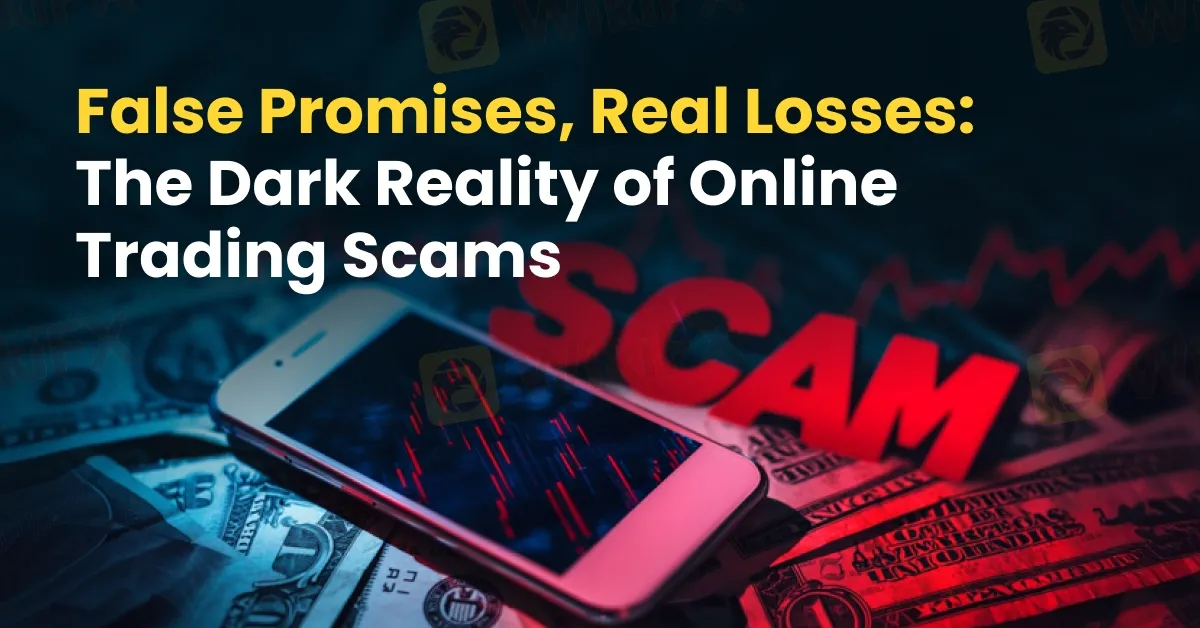False Promises, Real Losses: The Dark Reality of Online Trading Scams
Abstract:In an era where financial independence is marketed as just a few clicks away, online trading platforms have become fertile ground for a dangerous breed of digital deception with seductive fake promises including quick profits, little effort, and exclusive insights.

In an era where financial independence is marketed as just a few clicks away, online trading platforms have become fertile ground for a dangerous breed of digital deception. For every legitimate brokerage or trading educator, a legion of scammers lurks behind polished websites and persuasive ads, armed with a calculated playbook aimed at exploiting retail traders' hopes, inexperience, and FOMO (fear of missing out).
The promise is seductive: quick profits, little effort, and exclusive insights. But the reality for many retail investors is sobering. Rather than riding a bull market to financial freedom, they find themselves ensnared in a bear trap of manipulation, misdirection, and monetary loss.

Fraudsters frequently pose as trading gurus or representatives of well-known financial institutions. Leveraging doctored certifications, fake LinkedIn profiles, or AI-generated videos, they present a veneer of legitimacy. Phrases like “regulated by top-tier authorities” or “endorsed by global financial bodies” are liberally used without verifiable evidence. For victims, this false sense of security often lowers their guard.

Perhaps the most tell-tale sign is the promise of unrealistic returns. Claims of 20%, 50%, or even 100% profit in days or weeks are common bait. These are often backed by photoshopped account statements or staged testimonials. Initially, small withdrawals are permitted to build trust but once larger sums are deposited, communication ceases, and the traders funds disappear.

Scammers thrive on urgency. Limited-time offers, countdown timers, and exclusive ‘VIP’ opportunities are used to push users into hasty decisions. Victims are told they must “act now” to secure their financial future while simultaneously discouraging due diligence in the process.

Sophisticated schemes go further by creating clone websites or apps that mirror legitimate trading platforms. Victims unknowingly enter personal data or deposit funds into fraudulent accounts, believing they're engaging with trusted services. By the time discrepancies are noticed, the fraudsters have vanished.

A cruel twist in this saga is the follow-up scam. After suffering losses, victims are contacted by so-called “recovery experts” promising to retrieve lost funds, typically for a fee. Desperation often leads victims to fall twice.
While regulation is catching up, vigilance remains a trader's best defence. Investors should verify licences with financial authorities, be sceptical of pressure tactics, and avoid trading through social media channels or messaging apps. Crucially, if it sounds too good to be true, it likely is.
The digital trading revolution has empowered millions. But where there's money, there's malice. As scammers evolve in sophistication, so too must the awareness of retail traders. Education, scepticism, and regulatory enforcement are the only real tools to counter this enduring threat.

As incidents like this become increasingly common, tools such as WikiFX can play a vital role in helping individuals verify the legitimacy of brokers and financial platforms. WikiFX offers an extensive database of global broker profiles, regulatory status updates, and user reviews, enabling users to make informed decisions before committing to any financial investment. Its risk ratings and alerts for unlicensed or suspicious entities help investors easily spot red flags and avoid potential scams. By using tools like WikiFX to research a broker's background, individuals can safeguard their hard-earned savings and reduce the risk of falling victim to fraudulent schemes.

Read more

CySEC reaches €20k settlement with ZFN EUROPE
According to report, the Cyprus Securities and Exchange Commission (CySEC) announced today that it has entered into a settlement agreement with ZFN EUROPE Ltd for the amount of €20,000. This settlement resolves a regulatory inquiry into ZFN Europe’s compliance with Cyprus’s Investment Services and Activities and Regulated Markets Law of 2017, as amended.

Pi Network: Scam Allegations Spark Heated Debate
A whistleblower report has surfaced, casting doubt on the legitimacy of Pi Network, alleging psychological manipulation, opaque operations, and potential financial exploitation. What is your take on this?

Webull Listed on Nasdaq Following SPAC Merger with SK Growth
Webull and SK Growth complete their business combination, with Webull now trading under the ticker “BULL.” App hits 50 million downloads worldwide.

The Crypto Shift: Challenges and Opportunities for Traditional Brokers
Crypto exchanges are expanding into traditional asset classes like forex and commodities, blurring the lines with traditional brokers. Meanwhile, few brokers, like eToro, have successfully integrated crypto into their platforms, revealing both the opportunities and the challenges ahead.
WikiFX Broker
Latest News
Love, Investment & Lies: Online Date Turned into a RM103,000 Scam
Broker Took 10% of User's Profits – New Way to Swindle You? Beware!
Pi Network: Scam Allegations Spark Heated Debate
Broker Comparsion: FXTM vs AvaTrade
Account Deleted, Funds Gone: A New Broker Tactic to Beware Of?
Broker’s Promise Turns to Loss – Funds Disappear, No Compensation!
StoneX Subsidiary, Gain Global Markets Bermuda, Penalized for Trading Misconduct
El Salvador and U.S. Launch Cross-Border Crypto Regulatory Sandbox
The Instagram Promise That Stole RM33,000
Coinbase Launches Bitcoin Yield Fund for Institutional Investors
Rate Calc
